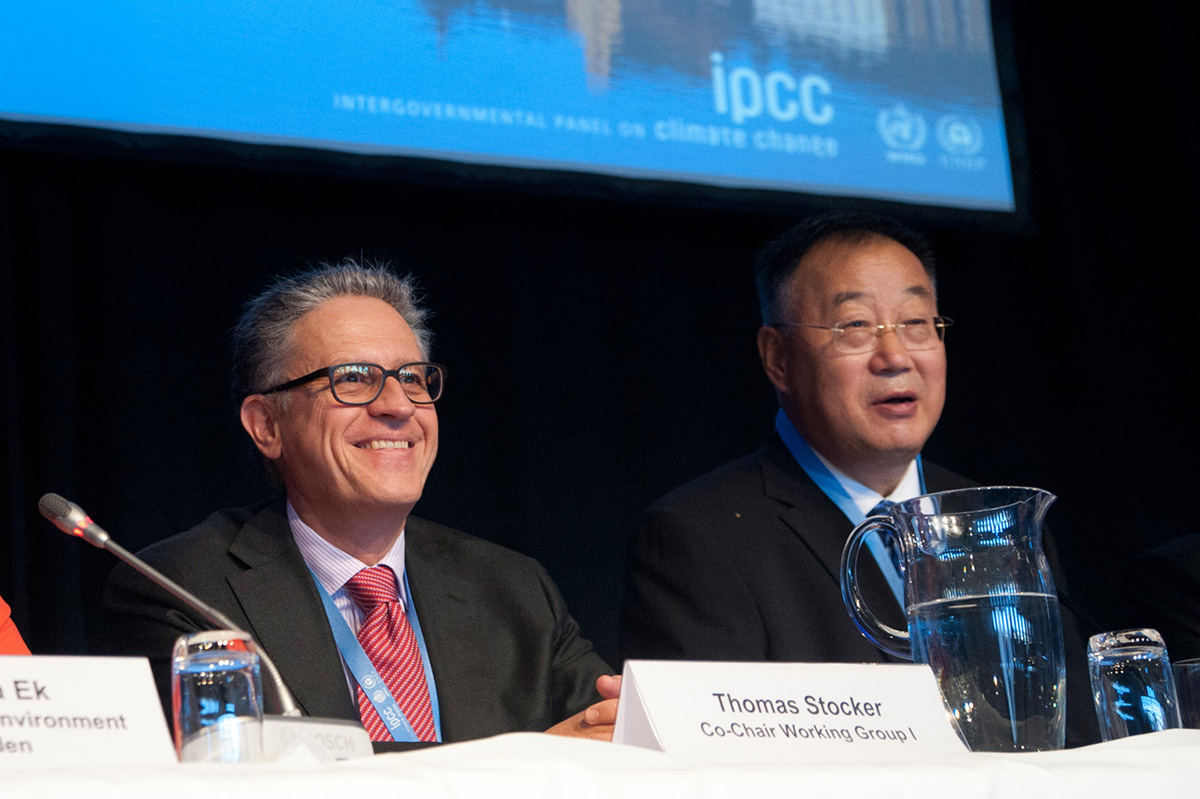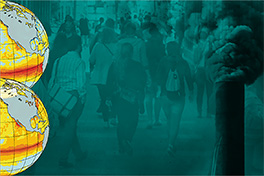Off to the Bern Bachelor Summer
The Bernese summers are legendary: the Gurtenfestival, bathing in the Marzili, celebrating on the Aare – who would miss things like lectures and seminar rooms? That could change this summer, because in 2018 the University of Bern is holding its first Summer School for Bachelor Students. The topic: "Confronting climate change – from science to policy". The lecturers include the renowned professor for climate research Thomas Stocker.
This premiere in the Bern range of courses is called International Bachelor Summer School for Climate Change Research, takes place from 6–17 August, and is aimed at students from the 4th semester. The two week program is organized by the Oeschger Centre for Climate Change Research and the World Trade Institute.
"We bring together highly motivated students with an open mind, who not only want to progress in their own subject, but are also interested in interdisciplinary collaboration", explains Christoph Raible, one of the organizers. Because, says the professor for climate dynamics, it is undisputed on a scientific and political level, that the huge challenges that climate change poses, can only be mastered with an interdisciplinary approach. Therefore, the Bern climate summer school is not only aimed at students of natural sciences, but also social sciences, economics and law.
Practice negotiation at the simulated climate change conference

The program of the Bern Bachelor Summer School is attractive. Over two weeks, lectures from renowned Bern climate change researchers such as Thomas Stocker are on the program. Knowledge and skills will also be taught in workshops and small groups, and the participants will hold their own climate change conference, in the form of a negotiation simulation. There is also an excursion to the High Altitude Research Station Jungfraujoch. The teaching language is English, because with their new program, the University of Bern is explicitly aiming at an international audience.
"The Bachelor Summer School is part of our efforts to internationalize the University of Bern", says the Vice Rector for Development Achim Conzelmann. The thinking is that students from abroad should get to know and value the University of Bern at Bachelor level, and then, later in their academic career, return to the place where they had a great time. "We see this summer school, not least, as an opportunity for an academic talent search, a chance to get exceptionally clever and ambitious students to Bern, who will then perhaps do their doctorate here a few years later", explains Achim Conzelmann.
The summer school program is however also absolutely aimed at locals. Because, apart from climate knowledge from various perspectives, and interdisciplinary experiences, the summer school also promises help in choosing a master’s degree. And in contact with the overseas participants, valuable international contacts can be made. In addition, 6 ECTS points can be gained for the event, credited to the normal degree.
Summer schools are internationally sought after
Summer schools at Bachelor level have until now been in short supply in Switzerland. In Anglo-Saxon countries however, they are traditional, and even elsewhere, interest has grown rapidly in the past few years. "Many students try to internationalize their CV with short mobility offers like a summer school, because they cannot afford a whole semester abroad", says Lenka Fehrenbach from the International Office of the University of Bern.
The University of Utrecht in the Netherlands has positioned itself very successfully as a summer school host. The program was started in 1987 with just one course. Now, summer after summer, over 200 different summer schools are organized – the majority of which at Bachelor level. In 2016, Utrecht counted over 3,500 summer school students from 120 different countries.
The first Bachelor Summer School in Bern is a trial run. "We want to test out the viability of this construct", says Vice Rector Conzelmann. However, it could absolutely be worthwhile to build up a "Summer School Bern brand". But this would require organizers from other fields to be inspired by the idea, as well as the Oeschger Centre and the World Trade Institute.
Especially because the University of Bern is breaking new ground with the International Bachelor Summer School for Climate Change Research, the participants can look forward to an event conceived with a great deal of dedication. This also includes a small but perfectly formed framework program. And then there is also the Bern summer. During the summer school, as if by order, it will host the street music festival Buskers. Bern from its best side.
THE INTERNATIONAL BACHELOR SUMMER SCHOOL FOR CLIMATE CHANGE RESEARCH

The OCCR and the World Trade Institute (WTI) jointly organize a Summer School entitled "Confronting Climate Change – from Science to Policy". It aims at bringing together highly motivated, open-minded bachelor students who are interested in Climate Change Research. The Bachelor Summer School is aimed at students of natural sciences, social sciences, economics and law from the 4th semester. It will take place from 6 – 17 August 2018 in Bern, Switzerland. Deadline for application is the 18 May 2018.
THE OESCHGER CENTRE FOR CLIMATE CHANGE RESEARCH (OCCR)
The Oeschger Centre is the University of Bern’s centre of excellence for climate research. It was founded in summer 2007 and bears the name of Hans Oeschger (1927–1998), a pioneer of modern climate research, who was active in Bern. The Oeschger Centre brings together researchers from nine institutes and four faculties and is at the forefront of research both within and across disciplines. Only cooperation between the natural, human, social, and economic sciences, and law can discover ways to counteract global climate change on an extremely wide variety of levels: regionally anchored and globally networked.
THE WORLD TRADE INSTITUTE (WTI)
The World Trade Institute (WTI), as an interdisciplinary centre of the University of Bern, is one of the worldwide leading academic institutes to address the regulation of international trade. It combines legal, economic and political sciences aspects of the international trade regulation in research, teaching, consultation and technical cooperation. The WTI was founded in 1999, to fill a gap in the university education, in the context of regulating world trade. From 2005 to 2017, the WTI was the home institution of the national research focus "Trade Regulation" of the Swiss National Fund.
ABOUT THE AUTHOR
Kaspar Meuli is a journalist and PR advisor. He is responsible for the communication of the Oeschger Centre for Climate Change Research.